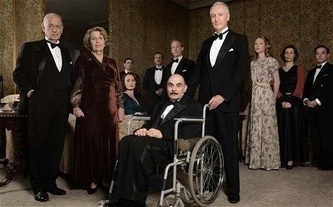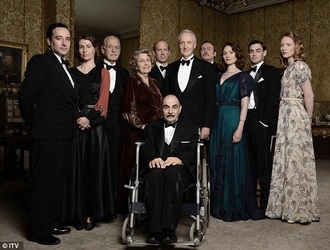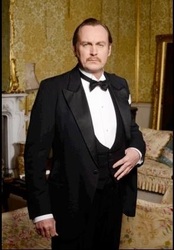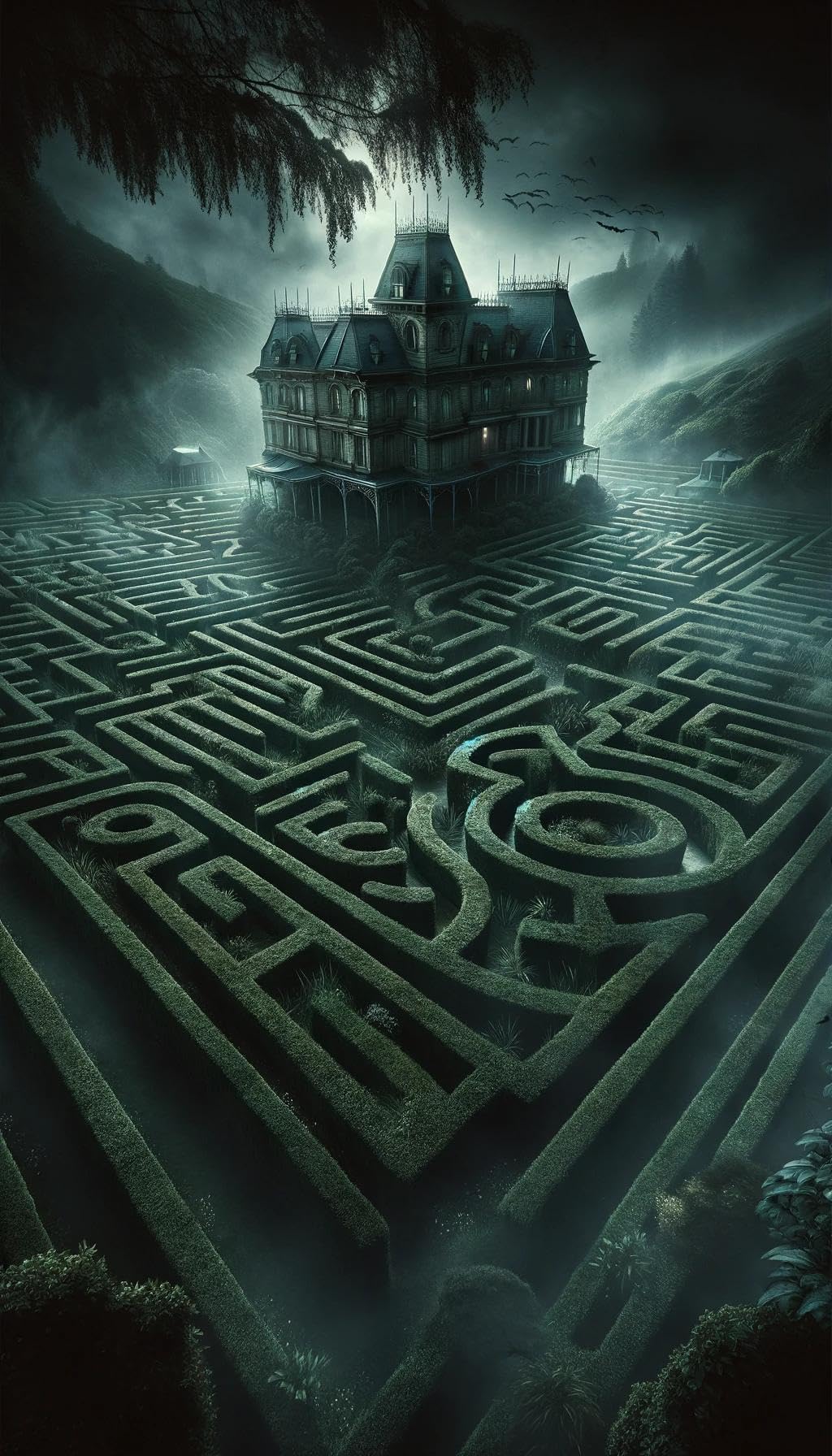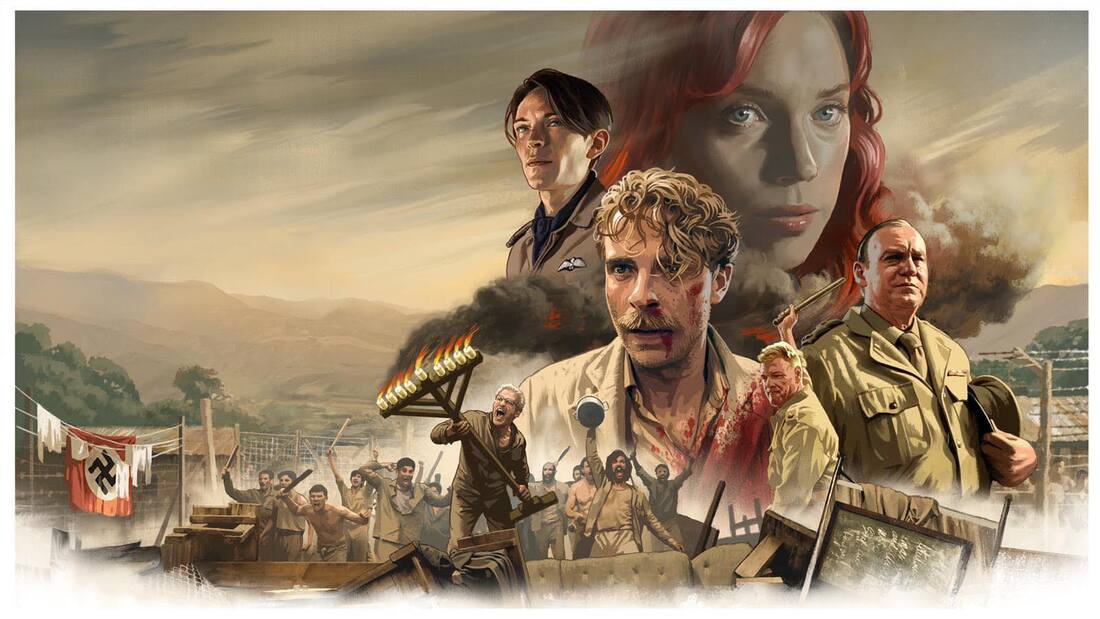How did you secure the role of Sir William Boyd Carrington?
David Suchet and I worked on a BBC drama called Hidden. While we were filming he asked me if I’d ever been in a Poirot. I hadn’t. Later, I then received a personal invitation from Hercule himself! I wasn’t going to say no to that. Curtain is the last ever Poirot, so it’s a pretty big deal for any actor.
Are you a fan of Agatha Christie?
During the summer I was in Devon and went to Greenway (Agatha Christie’s holiday home), where some of Dead Man’s Folly was filmed. It was interesting to walk around her estate knowing I had been a part of the last ever Poirot. It was a fascinating and intriguing place to visit.
Was it nice to return to a period drama after recently filming more contemporary roles?
Absolutely. The film is set ten years after The Labours of Hercules, in the mid- twentieth century, and that’s not a period I had done before. What really struck me about the whole production of Poirot was the attention to detail. Whether it’s makeup, props, costume, design, it is a real team effort done with great care. When you step onto set it’s literally like stepping back in time.
Tell us about your character.
It has to be said, I’m not an obvious casting choice for the role! Sir Carrington is a former governor of the province of India, an aristocrat who is rather eccentric. He was a very enjoyable character to play.
What is Sir Carrington’s relationship like with Barbara Franklin (Anna Madeley)?
Carrington is rather taken with ‘Babs’, and I think they’d be together if the circumstances were different.
Carrington believes Babs could do a lot better for herself if she wasn’t with that drab, boring husband, Dr Franklin, who is stuck in a lab all day. I think she would agree her life would be a lot more exciting if she were with Carrington!
Were you surprised to see a very different looking Poirot on set?
Yes. To achieve a frail and much older look David had to lose a lot of weight before filming. His commitment to the role is phenomenal and I have nothing but the upmost respect for him as a person and an actor.
What do you think is the appeal of Agatha Christie’s stories?
First and foremost, it’s good storytelling. The stories themselves are just brilliant, they’re really well acted, and the attention to detail really lets the whole thing run away with your imagination. The adaptations are just like opening one of her books, which means the production team have succeeded in doing what they set out to do.
What is David Suchet like to work with?
David is good fun to be around. Whenever he has the moustache on he behaves like Poirot even if he’s not being filmed. It’s clear to see how much the character means to him – Poirot is David’s legacy.
Was it emotional to film the final episode?
The most emotional part was watching the reunion between Poirot and Captain Hastings, played by Hugh Fraser. There is a wonderfully moving scene where Hastings is reading a passage from Othello to Poirot. They played it with such integrity. It was a pleasure to watch.
